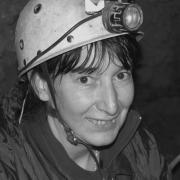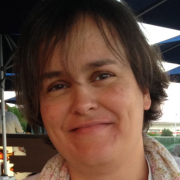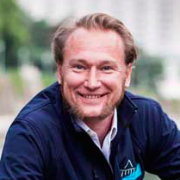Including young voices: tokenism, irresponsibility, paternalism or real change?
There is a generation whose life has been dominated by crises: financial crises, climate breakdown, the Covid-19 pandemic, a crisis of confidence in our democratic values, etc. We, as educational providers, are torn between the desire to involve young people in the topical challenges of our time and the guilt of always asking them more for a situation that they did not create. It’s also a big risk for our institutions as we must, at the same time, give students much more responsibility than they are used to and vouch for the quality of the programmes and the partnerships developed.
However, young people want to be listened to and we want to listen to them. Based Open Schooling experimentations - where young people closely collaborate with adults to solve real-world issues - this session proposes to explore the different questions, barriers, and opportunities that these projects face: what are the most effective methods to include young voices? Should we give up the reins to young people? When, where, and how?
Outcomes: what will participants get from this session? Skills, knowledge, experience etc.
In this session, we will first hear from professionals who implemented Open Schooling about the challenges they faced giving students large responsibility in collaborative projects with external stakeholders. They will share their doubts and fails and will provoke the participants: in the end, is it such a good idea to give a voice to young people?
In the reverse part, participants will be invited to share reflections related to projects involving children and teenagers in solving real-world issues and to think along with us about what should be done and how to make sure these collaborations work well.
Facilitator
Towards ESOF 2020 Trieste "Science in the City" Programme Manager
Trieste International Foundation (FIT)
Session speakers
Rony has been involved in the Make it Open project that aims to transform students into problem-solvers through maker education, varied physical settings, modified teaching roles, and unique learning formats, away from traditional pedagogical methods. By reflecting on two case studies, Rony will discuss whether the Open Schooling methodology offers enough room and flexibility to the students to start considering themselves as change-makers.
Gisela is involved in a European project - Schools As Living Labs - that tries to transform classrooms into living labs, putting students at the heart of the learning process and giving them much more responsibility than they are used to. In this session, Gisela will reflect on what happened in Portuguese schools, where teenage students with no knowledge of food systems and schools’ food sustainability went through a path of co-creation of knowledge, together with researchers, entrepreneurs and other stakeholders, to address food waste and healthy eating habits. Was the methodology successful in increasing students’ awareness, autonomy, and critical thinking?
International Liaison Coordinator
European Children's Universities Network EUCU.NET
The PHERECLOS project aims at supporting schools in making a change in their environments and becoming local knowledge hubs for their communities. The findings from the model implementation were distilled into tools that enable educators and stakeholders to prepare and advocate for Open Schooling - and success criteria were defined which can help to understand how Open Schooling can be effective in the longer run. In this session, Cyril will revisit these factors which are deemed relevant from the perspective of science organisations, when it comes to combining STEM engagement with a social agenda.




